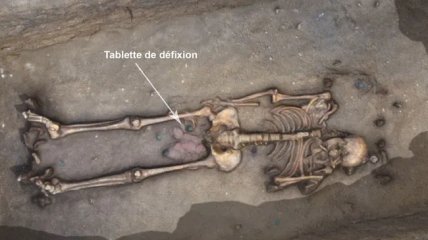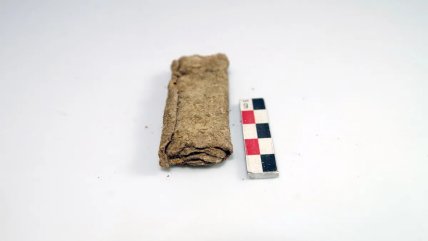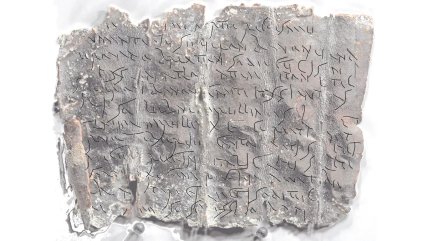In France, inscriptions with curses from the Roman Empire have been discovered. What do they reveal? (See photos)
Archaeologists can reveal a lot about ancient times, but the artifacts they uncover can still surprise us. During excavations of a Roman-era cemetery in Orléans, France, researchers discovered 21 lead curse tablets. All the findings were located in male burials at a cemetery that dates back to the late 1st to early 3rd century.
As noted by "Live Science", the cemetery was unusual: all the burials were arranged in a single row, devoid of women and children, featuring wooden coffins but no cremations. This may suggest that the buried individuals belonged to a specific profession or group.


The tablets, known as defixiones, are thin lead sheets inscribed with text in Latin and Gaulish. One of them, found in grave F2199, was positioned between the legs of a man alongside a vase and coins. The text on it addressed the god Mars ("Mars the King"), the Roman god of war. The curse was directed at several individuals whose unjust actions incited the author's wrath. The tablets were chemically treated for study to prevent corrosion, and the text was restored using specialized technologies.

Note: Defixiones were a common ritual in the Mediterranean. They were used to appeal to the gods: curses or wishes were inscribed on the lead plates, pierced with a nail, and placed on graves or in wells.
Previously, "The Telegraph" reported that in China, the remains of the world's smallest cat were found. It weighed only 1 kg and resembled a tiny leopard.